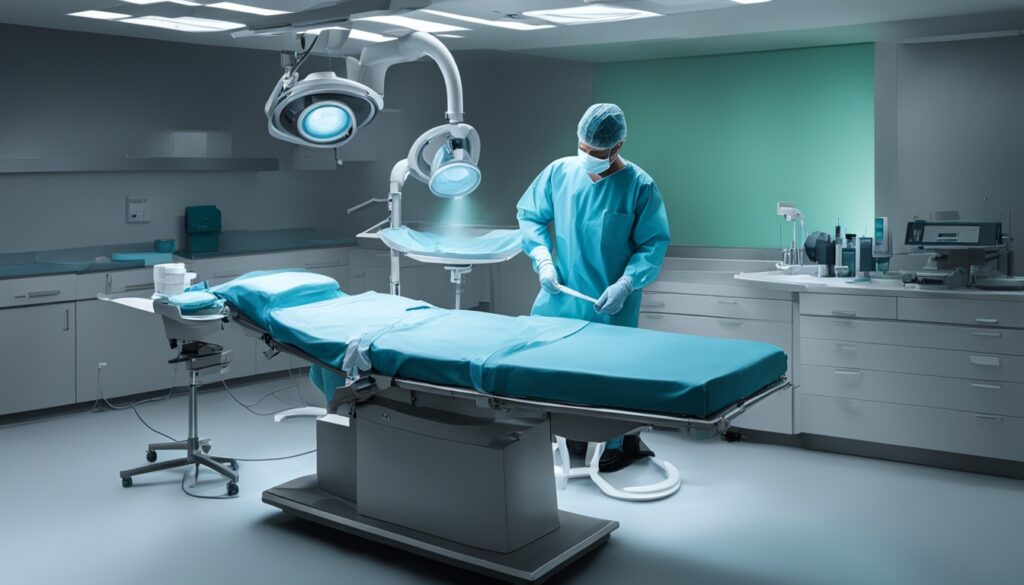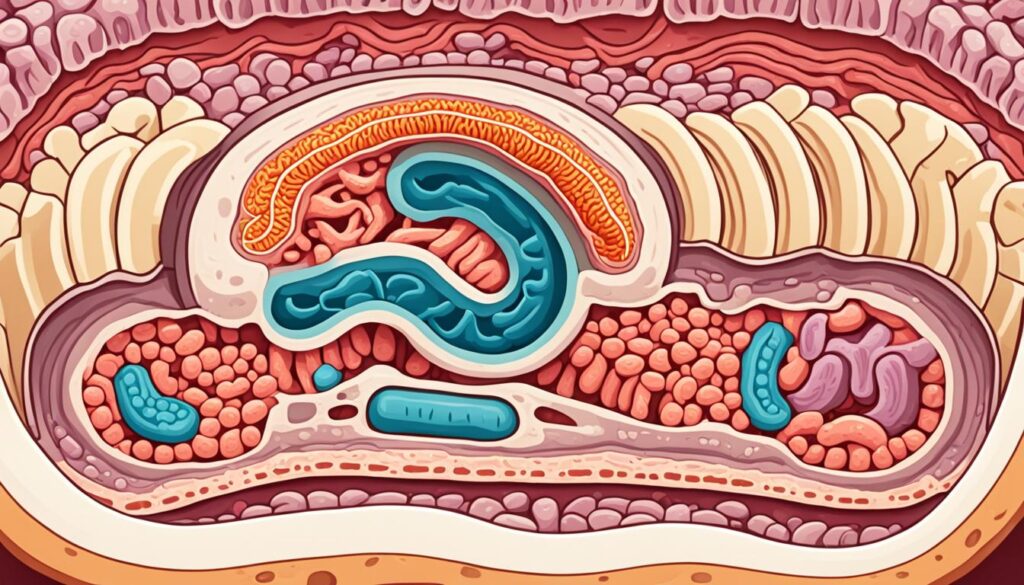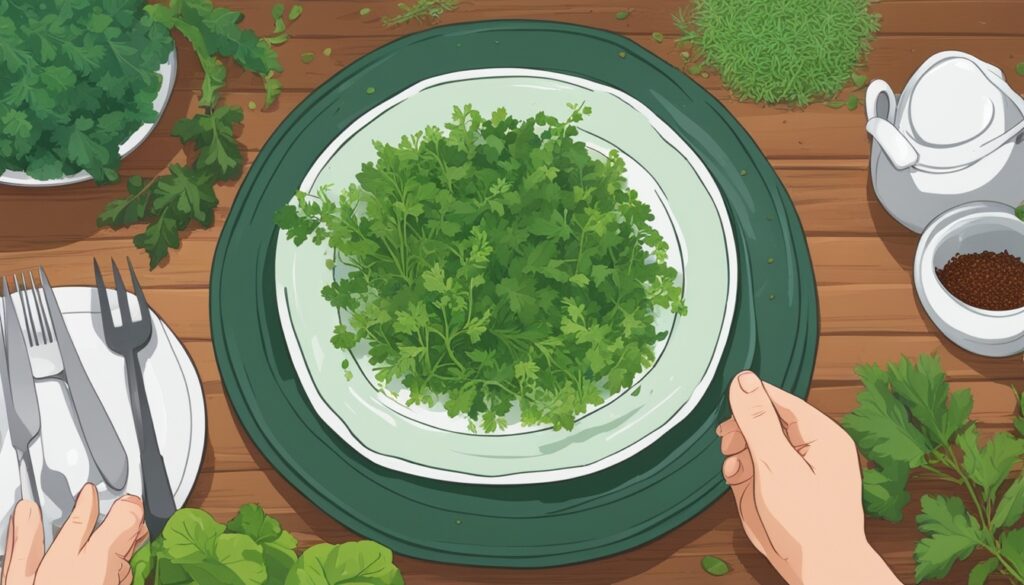If you have malabsorption, you’re not alone. This condition can come from many causes. These range from diseases of the digestive tract to changes in the gut’s bacteria. But treating malabsorption is key. It helps your body digest and absorb the nutrients it needs.
Table of Contents
ToggleOne common type of malabsorption is with fats. You may only digest about 15% of the fat you eat before it reaches your small intestine. The jejunum’s first two-thirds are vital for absorbing fats.
Issues like bile acids not processing fats well or small intestinal bacterial overgrowth (SIBO) can disrupt this process. This leads to symptoms like trouble absorbing fats.
Understanding Malabsorption
Definition and Causes
Malabsorption means the body can’t absorb nutrients properly. Maldigestion is when nutrients aren’t digested right. Although different, both issues are linked. They affect how the body both digests and absorbs nutrients. Malabsorption can happen due to various problems. These include diseases that affect the gut, certain conditions, and issues with absorbing certain nutrients. Other causes can be problems with the intestines, slow gut movement, wrong bacteria in the gut, diseases, or a lack of blood flow.
Symptoms and Diagnosis
Most issues with not absorbing nutrients happen in the small intestine. This area has lots of surfaces to help absorb nutrients. The signs of malabsorption can be similar. They often include diarrhea, fatty stools, losing weight or not growing well (especially in kids), or being pale due to anemia. The treatment and managing symptoms depend on what is causing the issue. This requires a proper diagnosis.
Fat Malabsorption
Fat malabsorption happens when the body can’t digest and absorb fats properly. This can lead to various health problems. The process of breaking down fats starts in the mouth. This is through chewing and with the help of a special enzyme.
As food moves to the stomach, it mixes with acids and enzymes from the pancreas. This further breaks down fats. Most fat absorption occurs in the beginning of the small intestine. There, the food mixes with bile from the gallbladder. This helps to turn bigger fat molecules into smaller ones, making them easier to soak up.
Role of Bile Acids and Enzymes
Bile acids are critical for digesting fats. Digestive enzymes from the stomach and pancreas also play a big role. They work together to break down fats into tiny pieces. This makes it easy for the body to absorb them in the small intestine.
Causes of Fat Malabsorption
Several things can cause the body to not break down fats the right way. Too much acid in the stomach, Zollinger-Ellison syndrome, and some digestive system diseases are common causes. Conditions like liver disease that affect how the liver works, or not enough bile flowing from the gallbladder result in fat malabsorption. Small intestine bacterial growth, problems with the pancreas, and issues with how the body absorbs fats also lead to this problem.
Malabsorption of Carbohydrates and Proteins
You might find it hard to absorb not only fats but also carbohydrates and proteins. For example, lactose intolerance makes digesting milk sugar, or lactose, tough. This leads to problems with dairy products. Conditions like celiac disease or some bowel problems can make absorbing protein difficult. They harm the small intestine, making it hard to take in amino acids and peptides.
Getting the right diagnosis and treatment for carbohydrate or protein malabsorption is key. This helps improve how your body takes in important nutrients. With your healthcare team, you can figure out what’s causing the issue. Then, you can work out a plan to better digest and use these vital substances.
Dietary Approaches for Malabsorption
If you have malabsorption, eating a high calorie diet can be beneficial. It ensures you get enough nutrition, even if your body struggles to absorb all nutrients. A doctor or dietitian will set your daily calorie target. This could be moderate if you’re a healthy weight or need to gain a bit more. If you’re losing weight or underweight, they might suggest a very high calorie diet.
Increasing Caloric Intake
It’s important to find which foods cause digestive problems. This can lower the symptoms that affect how your body absorbs nutrients. Keep a food diary to identify these trigger foods. Dairy, gluten, soy, and sugary foods are often the main troublemakers. It’s also wise to avoid them during disease flare-ups to help your gut heal.
Avoiding Food Triggers
Aside from eating more calories, focus on foods packed with nutrients. This includes essential vitamins, minerals, protein, and good fats. Fish, nuts, seeds, dark leafy greens, and healthy oils are excellent choices. For personal advice on the best diet for malabsorption, consult with a dietitian.
Nutrient-Dense Foods

Enzyme Replacement Therapy
Enzyme replacement therapy helps when the body can’t make enough digestive enzymes. It’s useful for those with illnesses like chronic pancreatitis or cystic fibrosis. By taking enzymes like lipase, protease, and amylase with meals, the body can better absorb nutrients. This is because the enzymes help break down fats, proteins, and carbs.
People with cystic fibrosis often face pancreatic enzyme problems, needing therapy. They might take digestive enzymes such as amylase, lipase, and protease. These are approved by the FDA for treating pancreatic issues.
Symptoms of enzyme issues include belly pain, bloating, diarrhea, and gas. Also, people might experience oily stools and lose weight without reason. These problems can be due to genetics or certain health conditions.
For some with pancreatic cancer, pancreatic enzyme therapy is used to help with nutrient absorption. The usual dose can range from 2,600 to 40,000 lipase units per capsule. For adults, doses over 20,000 lipase units per capsule are common. Adults are often advised to take 24,000 to 36,000 lipase units per capsule with meals.
If someone has steatorrhea (fatty stools), they might lack vitamins A, D, E, and K. Special multivitamins with water-soluble versions of these vitamins are recommended. Financial help for buying enzymes is often available for those under 65 not on Medicare.
Bile Acid Supplementation
Bile acids are key in digesting and absorbing dietary fats. But, if their production or release is low, like in liver disease, issues arise. Taking bile acids as a supplement can boost fat digestion and mitigate the problems of malabsorption.
Colesevelam stands out, working better than others due to its strong bond with glycocholic acid. It’s shown to be effective with fewer side effects than its counterparts. Unlike many options, it doesn’t cause constipation often.
The ideal starting dose for colesevelam against high cholesterol is 3.75 g once daily or 1.875 g twice daily. For adults, the best dose is 4.375 g. It leaves the body through the digestive system, limiting side effects elsewhere.
There are four types of bile acid malabsorption, each with its own causes. They can range from issues with the ileum to medications like Metformin. This problem can lead to a lack of fats and fat-soluble vitamins, hurting digestion and nutrition.
Using bile acid supplements can improve fat digestion and absorption. This approach is helpful for those with liver diseases or synthesis issues. It addresses the malabsorption problems linked to bile acid issues, aiding digestion and nutrition.

malabsorption treatments
Antibiotics for Bacterial Overgrowth
Small intestinal bacterial overgrowth (SIBO) upsets digestion by encouraging the growth of certain bacteria. These bacteria change bile acids, making them no good for digesting fat. Treating SIBO with antibiotics can help. It fixes the gut’s bacterial balance, which then allows better nutrient absorption. This way, antibiotics can lessen the impact of SIBO on nutrition.
Anti-Inflammatory Medications
Illnesses like Crohn’s or celiac disease can cause inflammation in the gut. This inflammation can stop the body from absorbing nutrients. Doctors might use anti-inflammatory drugs to help. These could be corticosteroids or biologics. The goal is to calm the inflammation so the gut can work like it should. This helps the body take in the nutrients it needs.
Surgical Interventions
If the small intestine has big problems, like too much damage or not enough area to absorb nutrients, doctors may suggest a bowel resection. In this surgery, they cut out a piece of the small intestine. By doing this, they aim to help the body absorb nutrients better by shrinking the area where malabsorption occurs. Yet, this choice usually comes last because it might cause other issues and a lack of important nutrients.
Bowel Resection
When the health of the small intestine is seriously bad, causing a lot of trouble in absorbing nutrients, a bowel resection might be recommended. This surgery means taking out the part of the small intestine that’s sick. The aim is to make the body absorb more nutrients by lessening the area of problem. Doing this surgery can work well sometimes. It’s seen as a big step to take, usually done after trying other treatments that didn’t work.
Choosing to do a bowel resection can also mean facing other troubles like not getting enough nutrients, having diarrhea, or even more problems in the gut. Because of this, doctors see this surgery as the very last option. They will think hard, looking at both the good and bad sides, before they suggest intestinal surgery to fix nutrient absorption issues.

Nutritional Supplements
Malabsorption can cause shortages in key vitamins and minerals like iron and vitamin B12. By using targeted supplements suggested by a doctor, you can fill these gaps. This approach boosts your health. What supplements you should take depends on what’s causing your malabsorption.
Elemental Diets
If you find it hard to get enough nutrition from food due to malabsorption, your doctor might recommend an elemental diet. These diets offer all nutrients in an easy-to-absorb, liquid form. They skip the usual digestion steps. For people with severe gut issues, elemental diets can be a lifeline.
Managing Malabsorption in Specific Conditions
Malabsorption shows up differently in various health issues, needing special ways to handle and enhance nutrient absorption. We’ll look into how celiac disease, inflammatory bowel diseases, and cystic fibrosis affect nutrient absorption. Also, the treatments used to deal with it in these cases.
Celiac Disease
In celiac disease, the body fights gluten with inflammation, hurting the small intestine. This stops proper nutrient absorption. The key treatment is a serious gluten-free diet. This diet helps the intestines to heal. It also boosts the body’s nutrient absorption ability. It’s vital to stay away from gluten. Otherwise, it could cause more damage to the intestines.
Inflammatory Bowel Diseases
Conditions like Crohn’s disease and ulcerative colitis can harm the intestinal lining, affecting nutrient absorption. It’s critical to manage the inflammation with medicines, diet, and other methods. This helps fix the malabsorption problem. Knowing and avoiding foods that trigger the condition is key.
Cystic Fibrosis
Cystic fibrosis is a genetic issue affecting the making of pancreatic enzymes needed for proper nutrient absorption. In this case, enzyme replacement therapy is crucial. This therapy involves taking extra enzymes with meals. By doing this, nutrient absorption can improve in people with cystic fibrosis. It is very important to tackle malabsorption for these individuals to stay well nourished and healthy.

Lifestyle Modifications
Dealing with malabsorption means lifestyle changes are key. They can help manage symptoms and boost nutrient absorption. Focusing on reducing stress and staying active is crucial.
Stress Management
Stress often worsens malabsorption symptoms and hurts the gut-brain connection. It’s vital to include stress-relief methods in your daily routine. This includes things like meditation, yoga, deep breathing, and talking to a therapist. Dealing with the mental and emotional parts of malabsorption is a big part of getting better.
Regular Exercise
Getting into regular exercise is great for your gut. It helps your intestines move better, boosts blood flow, and improves your immune system. This all helps your body absorb more nutrients. Make sure the exercise you choose is right for what you can do. Your doctor can help you find a plan that works for you.
Integrative Approaches
Traditional medical treatments are key for treating malabsorption. However, complementary and integrative therapies can also help. These include methods like herbal remedies and mind-body therapies. Before trying any new treatments, talk to your doctor first.
Herbal Remedies
Ginger, peppermint, and chamomile are among the herbal remedies that could be beneficial. Ginger can reduce inflammation and boost digestive enzymes. Peppermint might ease irritable bowel syndrome symptoms, linked to malabsorption. Meanwhile, chamomile is known for its calming effects on the stomach.
Remember, herbal supplements may interact with your current medications or worsen health issues. Always check with your healthcare provider before trying any new herbal treatments. They can advise you on what’s safe and suitable for you.
Mind-Body Therapies
Our thoughts and emotions can impact our digestive health. That’s why activities like meditation, yoga, and deep breathing can be helpful. These practices aim to reduce stress and anxiety, which are common in people with malabsorption.
For instance, meditation can decrease inflammation and improve the movement of your gut. Yoga and deep breathing help engage the part of your nervous system that handles digestion. This might aid in better nutrient breakdown and absorption.
Integrating these alternative therapies with your standard care can introduce extra benefits. It’s important they supplement, not replace, your usual medical treatments. Their holistic approach can sometimes offer newfound relief.

Monitoring and Follow-Up
It’s very important to keep an eye on your symptoms to manage malabsorption well. Track what you eat, how you feel, and any weight changes. This helps your doctors figure out what might cause your symptoms. Make sure you see your healthcare team regularly to talk about how you’re doing.
Tracking Symptoms
Keep a close watch on how malabsorption affects you. Note patterns in your digestion and any changes in weight. This record will help your doctors tweak your treatment to feel better and absorb nutrients properly.
Regular Check-Ups
Regular appointments with specialists are key for dealing with malabsorption. You might see doctors or nutrition experts, depending on your situation. They will check your health, nutrient levels, and change your plan if necessary. Keeping up with these visits is crucial for staying healthy.
Conclusion
Malabsorption needs careful and unique treatment. This involves changing your diet and maybe taking enzymes or bile acids. You might also need antibiotics or anti-inflammatory drugs. In severe cases, surgery could be an option. Regular check-ups are vital to ensure you’re getting the nutrients you need.
Each person’s experience with malabsorption is different. The key is to find what works best for you. Your healthcare team will help create a plan that suits your needs. With the right treatments and support, living well with malabsorption is possible.
There’s no single way to treat malabsorption. You and your doctor will craft a plan just for you. This plan will focus on what is causing your malabsorption and your health goals. With your dedication and your doctor’s help, managing malabsorption can lead to a happier life.
FAQ
What is malabsorption?
Malabsorption means your body has trouble taking in nutrients where it should. Maldigestion is when your body struggles to break down food for nutrients in the gut.
What can cause malabsorption?
A lot of things can lead to malabsorption. This includes diseases of the gut lining, injuries to the gut lining, or even birth defects. Problems digesting or absorbing certain nutrients, slow gut movement, bad gut bacteria, infections, and issues with blood flow can cause malabsorption too.
What are the common symptoms of malabsorption?
The symptoms include loose stools, greasy stools, losing weight without trying, slow growth or bone issues in children, and looking pale from low iron.
What is fat malabsorption?
Fat malabsorption happens when your body can’t break down or absorb fats properly. This leads to greasy, foul-smelling stools called steatorrhea.
How can carbohydrate and protein malabsorption occur?
Missing the enzyme to break down carbohydrates can cause this. For proteins, damage to the gut lining from conditions like celiac disease or inflammatory bowel diseases can lead to poor absorption.
How can calorie and nutrient-dense foods help with malabsorption?
Eating high-calorie foods and focusing on nutrient-rich items ensures you get enough essential nutrients. Even with malabsorption, this can keep you healthy.
How can enzyme replacement therapy help with malabsorption?
For people not making enough enzymes, like in chronic pancreatitis or cystic fibrosis, extra enzymes help. These include lipase, protease, and amylase.
What is the role of bile acids in malabsorption?
Bile acids are key for breaking down and absorbing fats. If the body doesn’t make or release enough, adding more can aid fat digestion.
How can antibiotics and anti-inflammatory medications help with malabsorption?
Antibiotics can fix too much bacteria in the small intestine and improve nutrient use. Anti-inflammatories can heal the gut, making it better at absorbing nutrients.
When may surgical interventions be necessary for malabsorption?
Surgeons might intervene if a lot of the small intestine is damaged. This can help by making the area available for nutrient absorption smaller.
How can vitamins, minerals, and elemental diets help with malabsorption?
Special supplements can tackle nutrient shortages. Liquid diets with easily absorbed nutrients might also be necessary for a damaged gut.
How can stress management and exercise support nutrient absorption?
Lowering stress and staying active can make your gut health better. This helps with digesting food, blood flow to the gut, and a stronger immune system.
What is the importance of monitoring and follow-up for managing malabsorption?
Checking in often is vital to make sure you’re getting enough nutrients and staying healthy. It’s important to work with your doctor to adjust your care as needed.
Source Links
- https://www.ncbi.nlm.nih.gov/books/NBK553106/
- https://www.wikihow.com/Treat-Malabsorption
- https://www.ncbi.nlm.nih.gov/pmc/articles/PMC8070135/
- https://my.clevelandclinic.org/health/diseases/22722-malabsorption
- https://www.webmd.com/digestive-disorders/malabsorption-syndrome
- https://www.mountsinai.org/health-library/diseases-conditions/malabsorption
- https://www.ncbi.nlm.nih.gov/pmc/articles/PMC4171253/
- https://www.hopkinsmedicine.org/health/wellness-and-prevention/digestive-enzymes-and-digestive-enzyme-supplements
- https://www.ncbi.nlm.nih.gov/pmc/articles/PMC6378466/
- https://www.oncolink.org/support/nutrition-and-cancer/during-and-after-treatment/pancreatic-enzyme-replacement-therapy-pert
- https://www.ncbi.nlm.nih.gov/pmc/articles/PMC1774391/
- https://my.clevelandclinic.org/health/diseases/24312-bile-acid-malabsorption
- https://gutscharity.org.uk/advice-and-information/conditions/bile-acid-malabsorption/
- https://pubmed.ncbi.nlm.nih.gov/8788337/
- https://www.ncbi.nlm.nih.gov/pmc/articles/PMC4582697/
- https://www.rupahealth.com/post/functional-medicine-treatment-for-malabsorption-syndrome
- https://www.fammed.wisc.edu/files/webfm-uploads/documents/outreach/im/overview-digestive-health.pdf
- https://www.sciencedirect.com/science/article/pii/S2212958822000350
- https://www.healthline.com/health/malabsorption
- https://www.ncbi.nlm.nih.gov/pmc/articles/PMC7149679/


